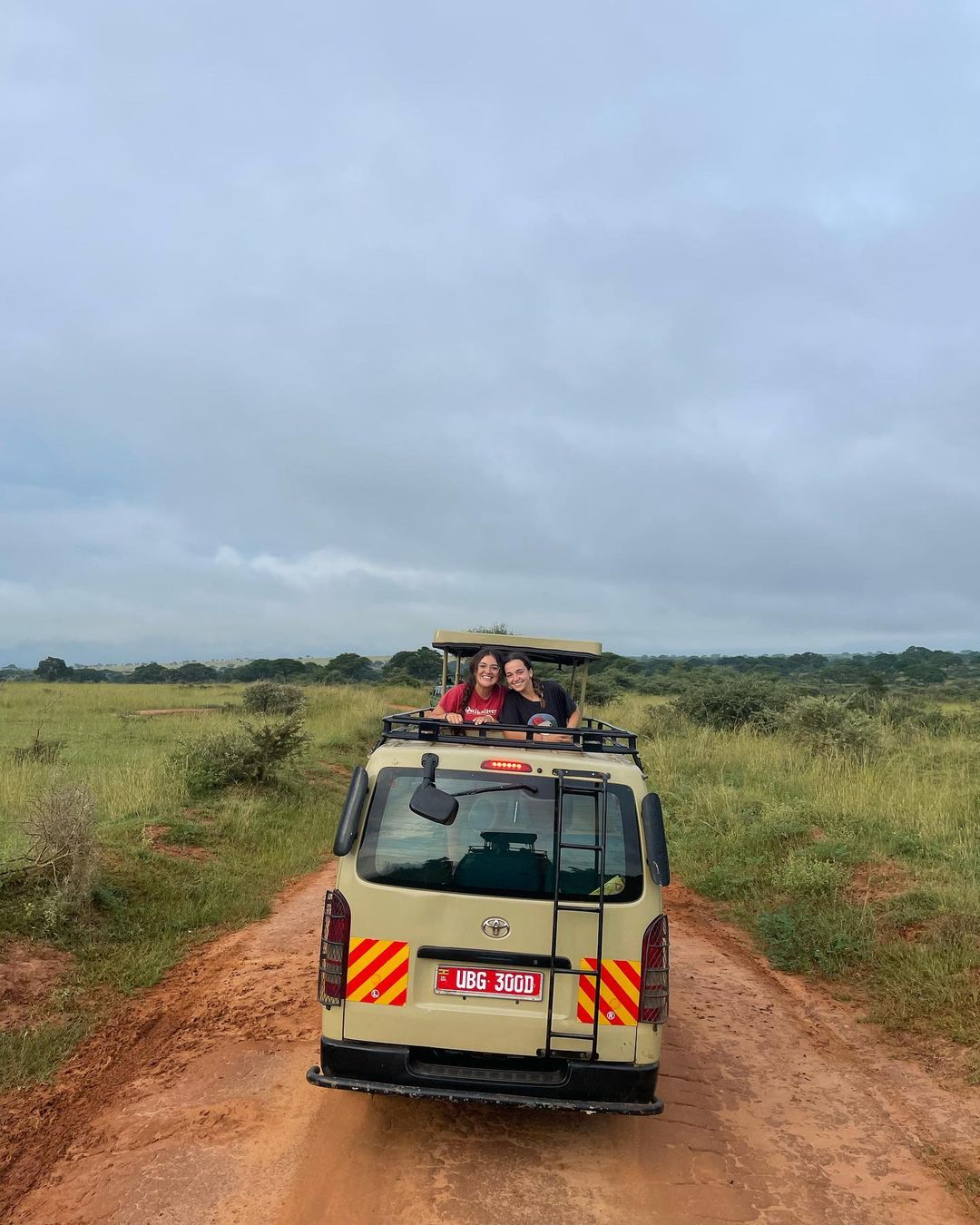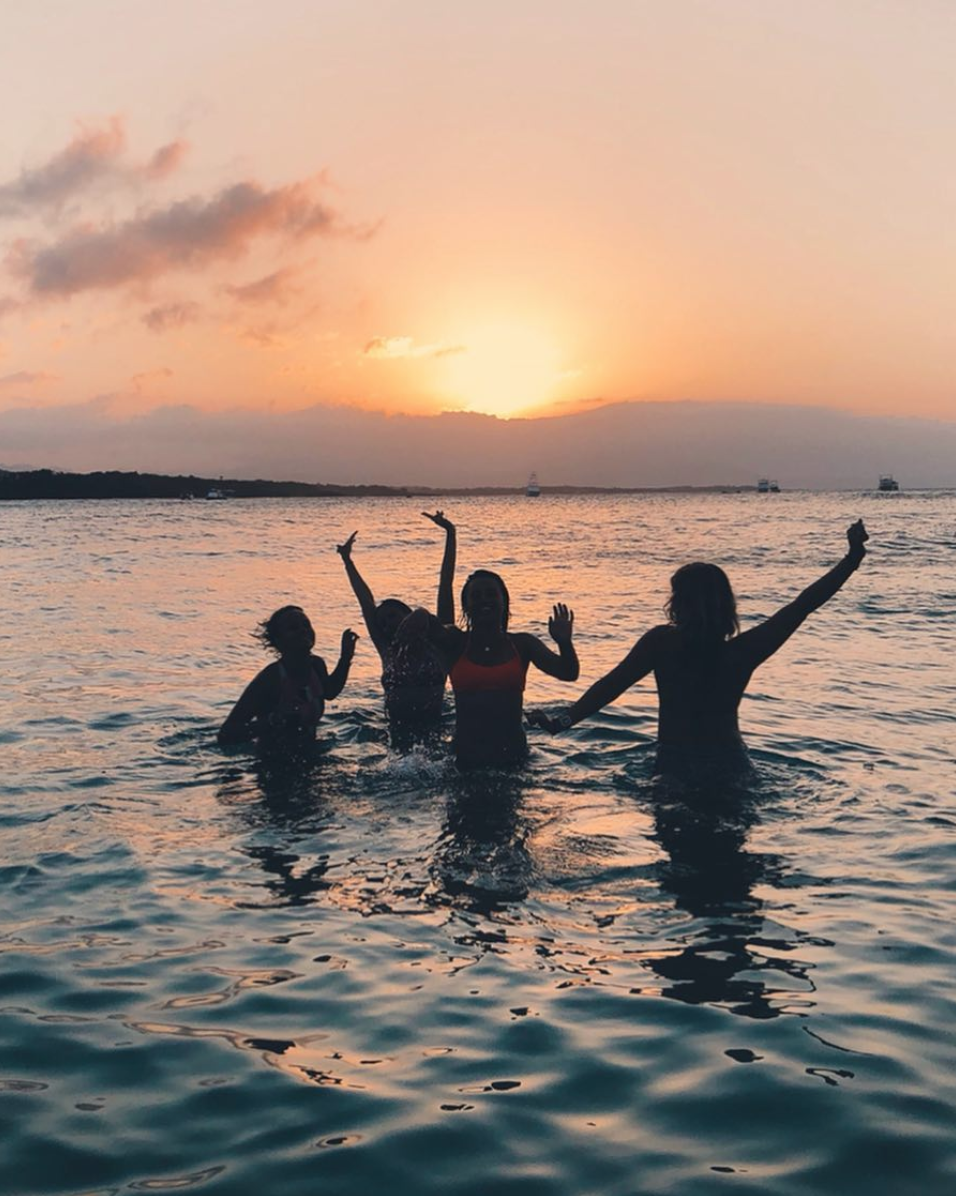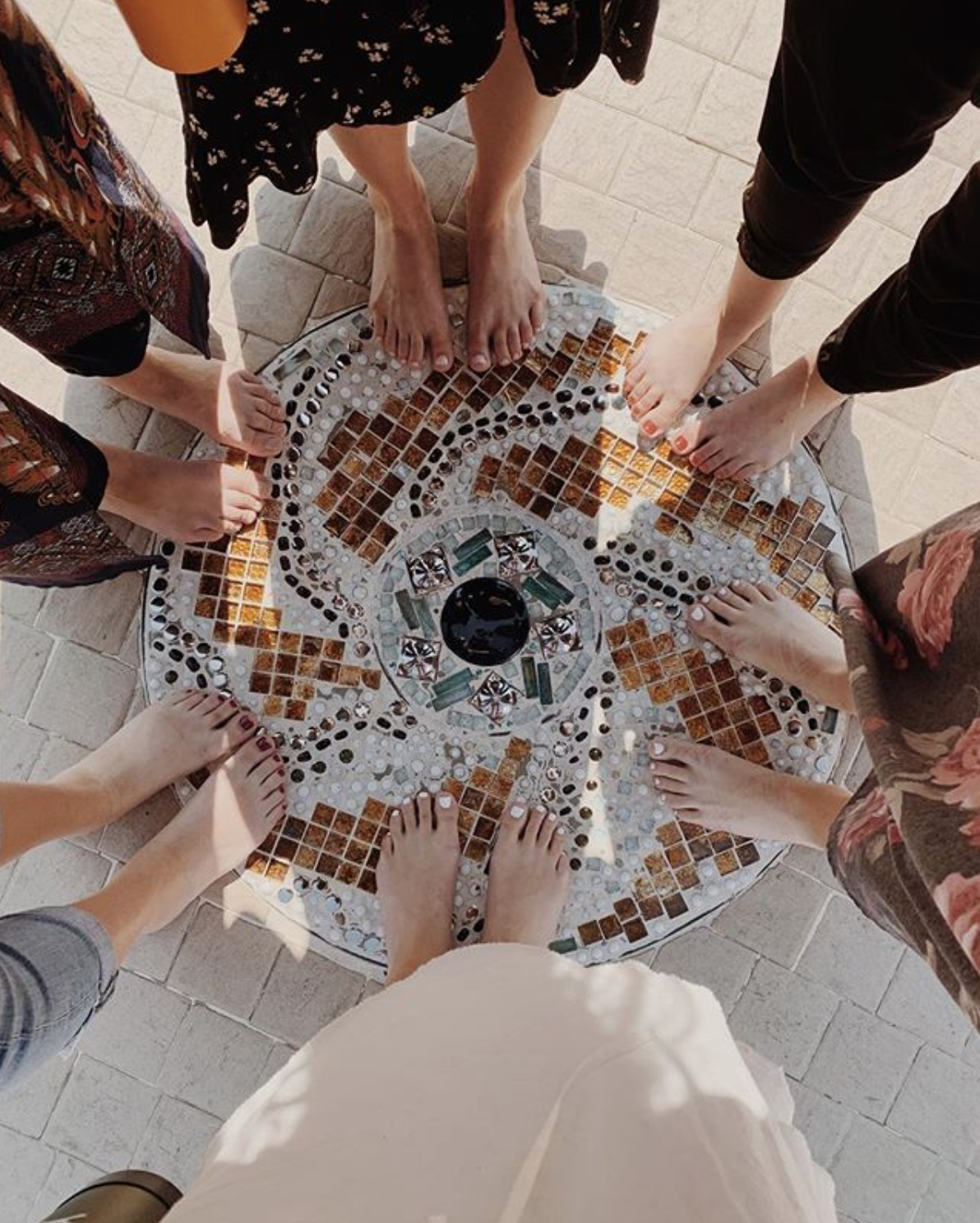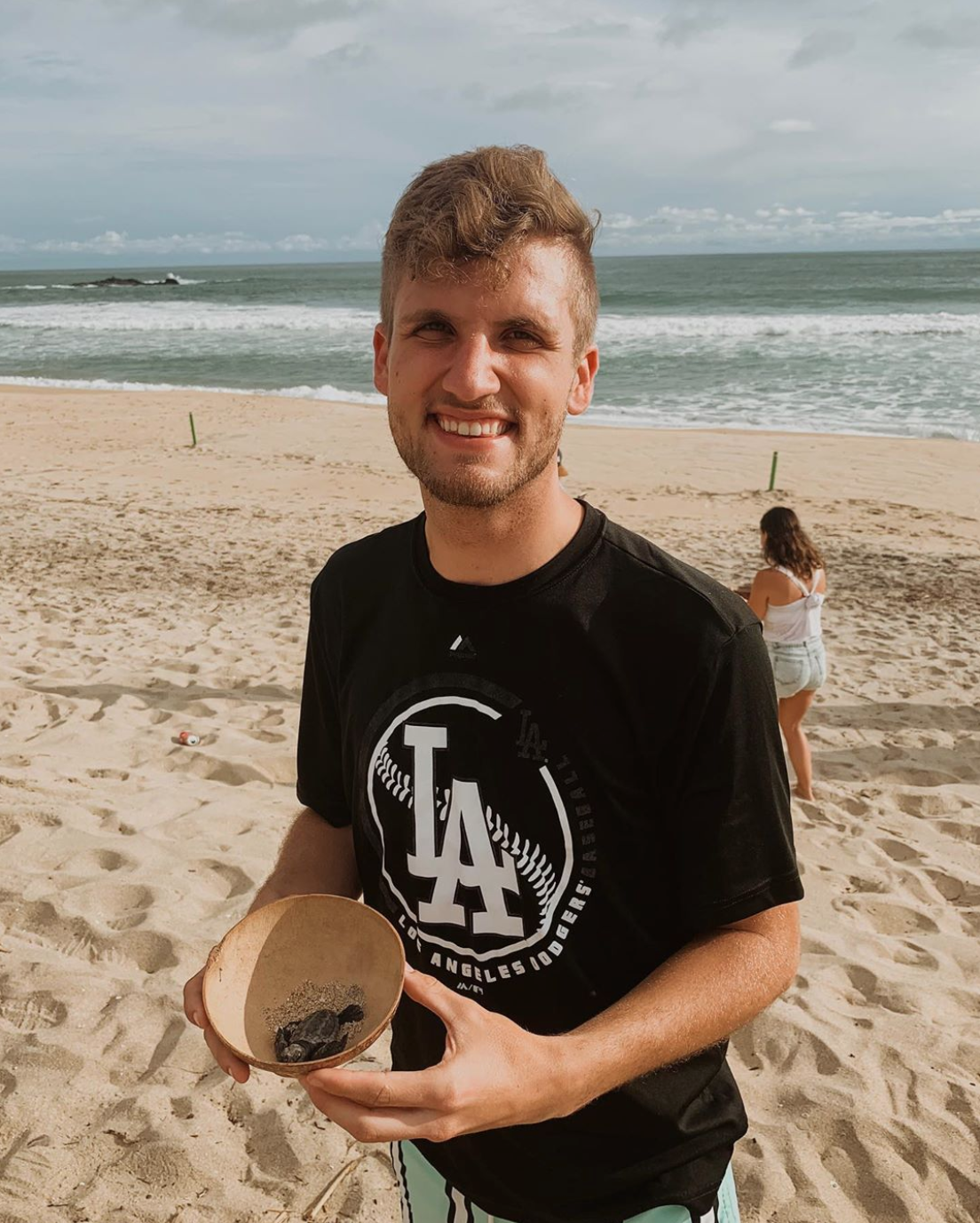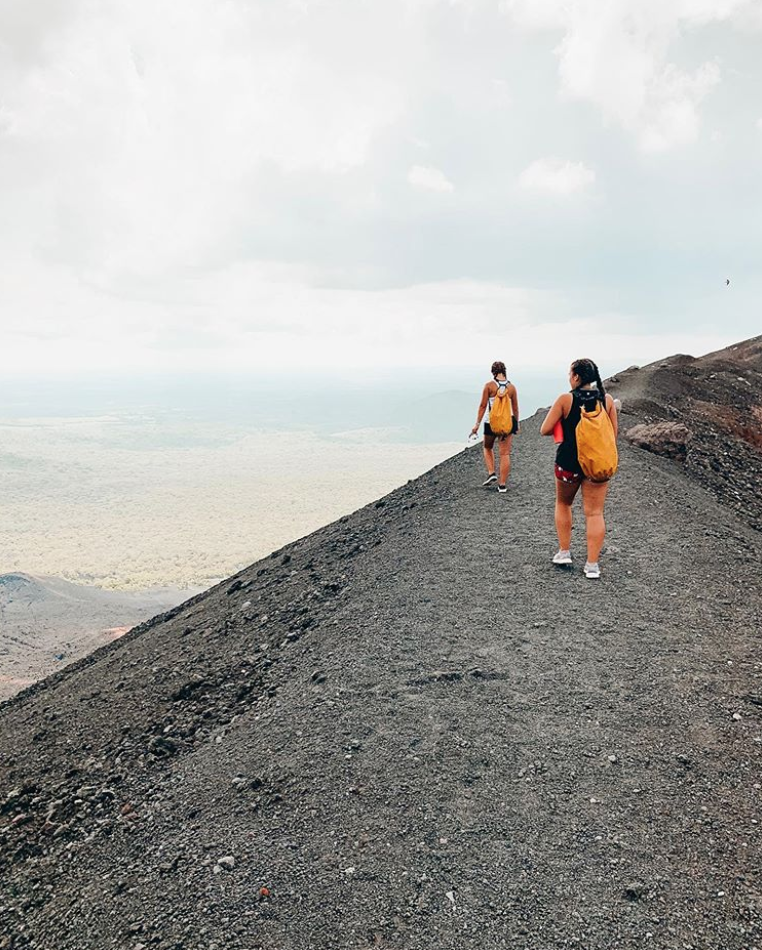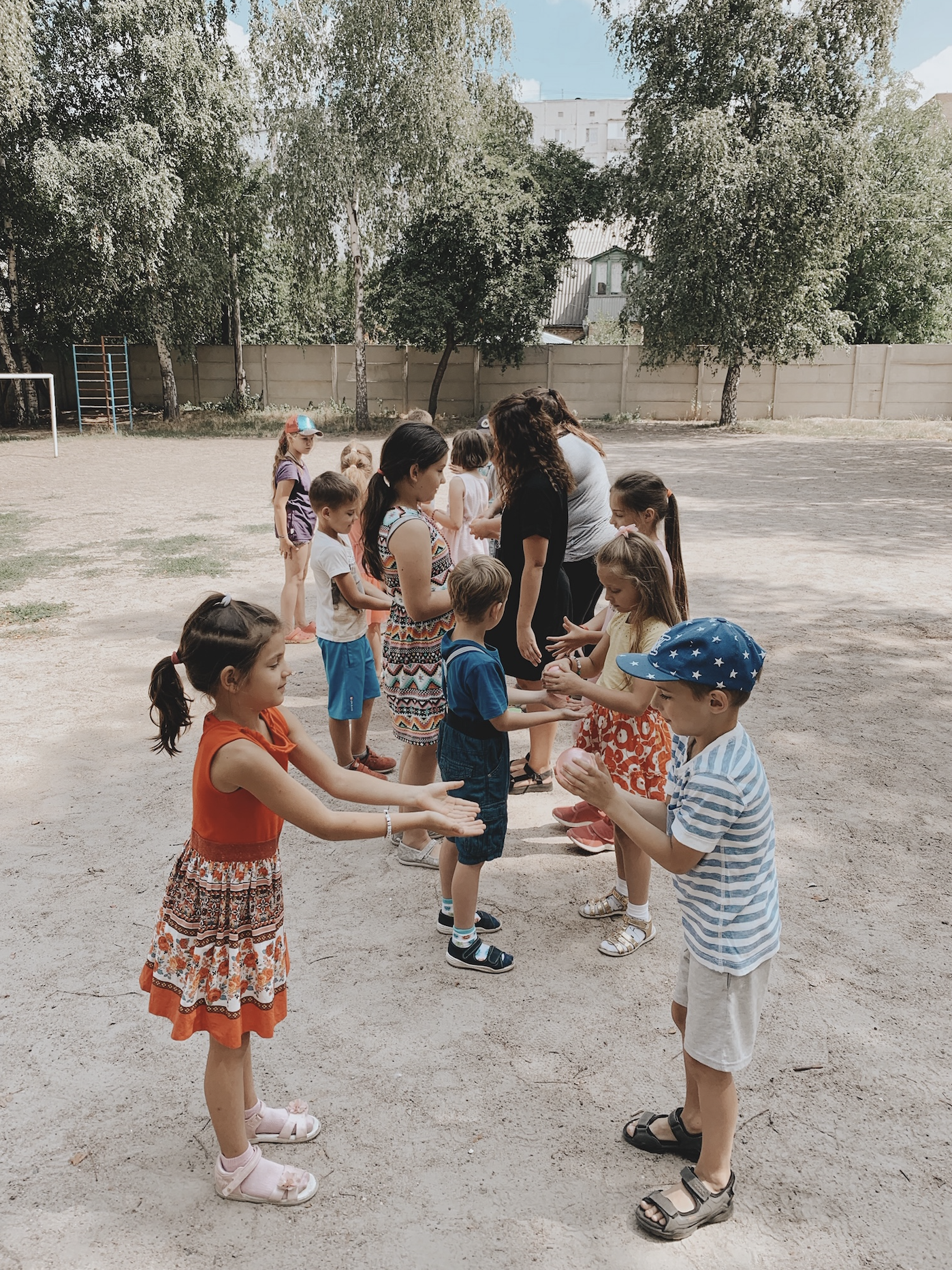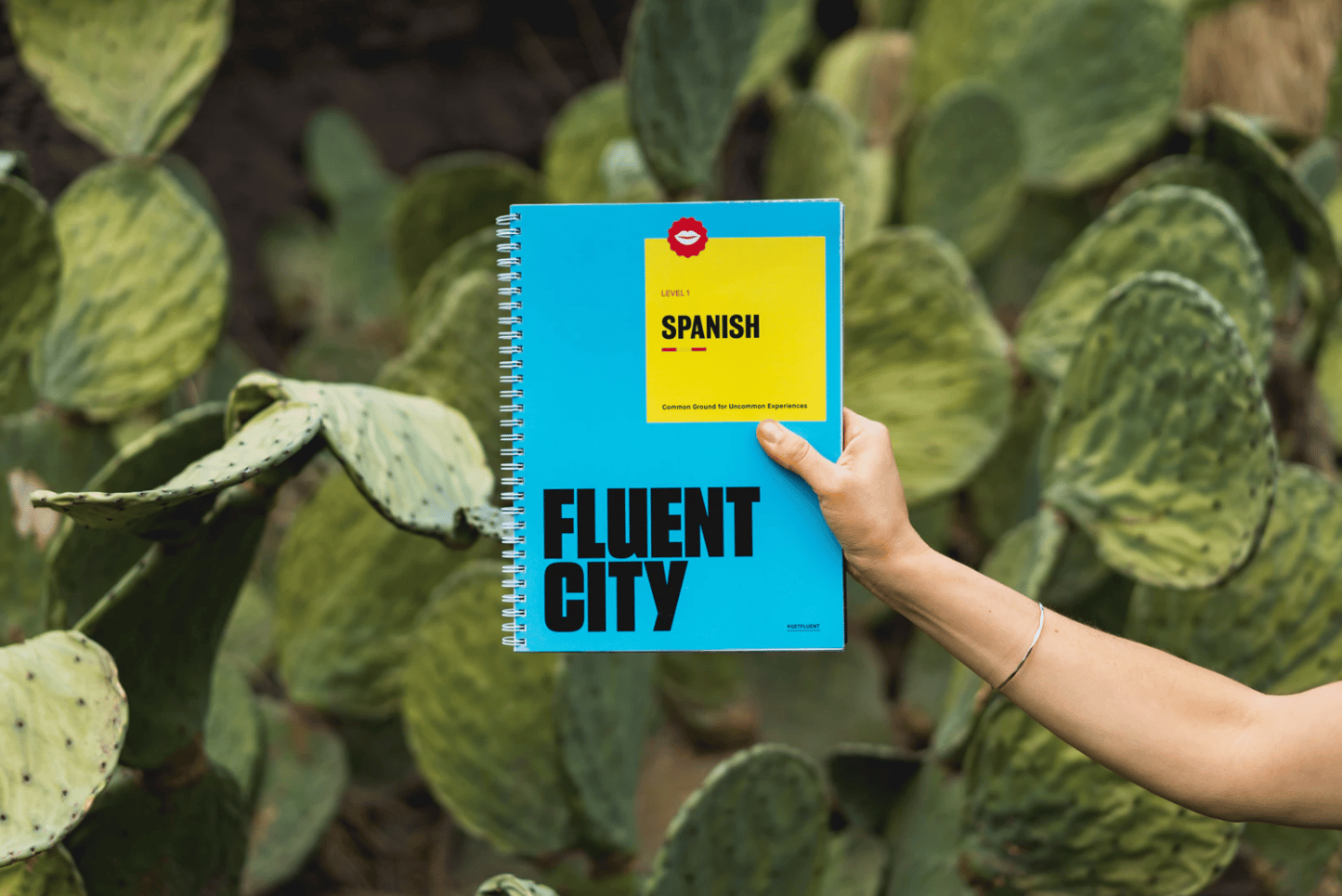
Volunteering in Mexico? Or spending your summer in Costa Rica? We've got semester abroad programs in a handful of Spanish speaking countries — why not pick up some basic Spanish before you go?
If you're an ILP volunteer you're not required to know the local language. In fact, most of our volunteers only speak English. And that's okay! If you are an ILP volunteer in Mexico, Costa Rica, Nicaragua or the Dominican Republic, you'll spend around four hours a day playing with young children and speaking to them entirely in English. No Spanish required!
But what about the rest of your day? Or your weekends? I have a feeling you'll want to get out and explore your new home around you, whether that means visiting museums, grabbing a bite, or heading to the beach.
Not a volunteer yet?
Start your application to come volunteer in Central America with us!
We highly recommend learning even the most basic Spanish for your trip. If you can walk into a room and at least say hello, you'll feel a lot more comfortable. Even if you can't hold a conversation with locals or speak fluently, it's a sign that you're trying and that goes a long ways.
Speaking from experience, if you learn basic Spanish before you go, it will help you to have more meaningful experiences while living abroad. Before my summer in Mexico with ILP, I had taken a couple of Spanish classes in high school so I had a little background with it. I was still really nervous about trying out the little Spanish I knew on actual Spanish speakers, but I could tell they really loved that I was trying. I have so many fun memories with my new friends in Mexico teaching me Spanish. We'd go out for dinner and they'd force me to order the food for all of us, and the first time I nailed it even the waitress was cheering for me!
Long story short, after a few months of putting myself out there trying to speak a new language, I was surprised how much I knew by the end of my trip.
Now Spanish does vary slightly from country to country (for instance, I recently learned that there are six ways to say homerun), but these phrases are all basic enough that they'll typically work in a pinch.
Must Know Phrases
Common Useful Phrases
In Case You Get Stuck
Pronunciation
Keep Learning
Must Know Phrases:
Hola = Hello
(Sounds like O-la)Adios = Goodbye
(Sounds like ah-dee-os)
Gracias = Thank you
(Sounds like grah-see-us)
Por favor = Please
(Sounds like pour fah-vor)
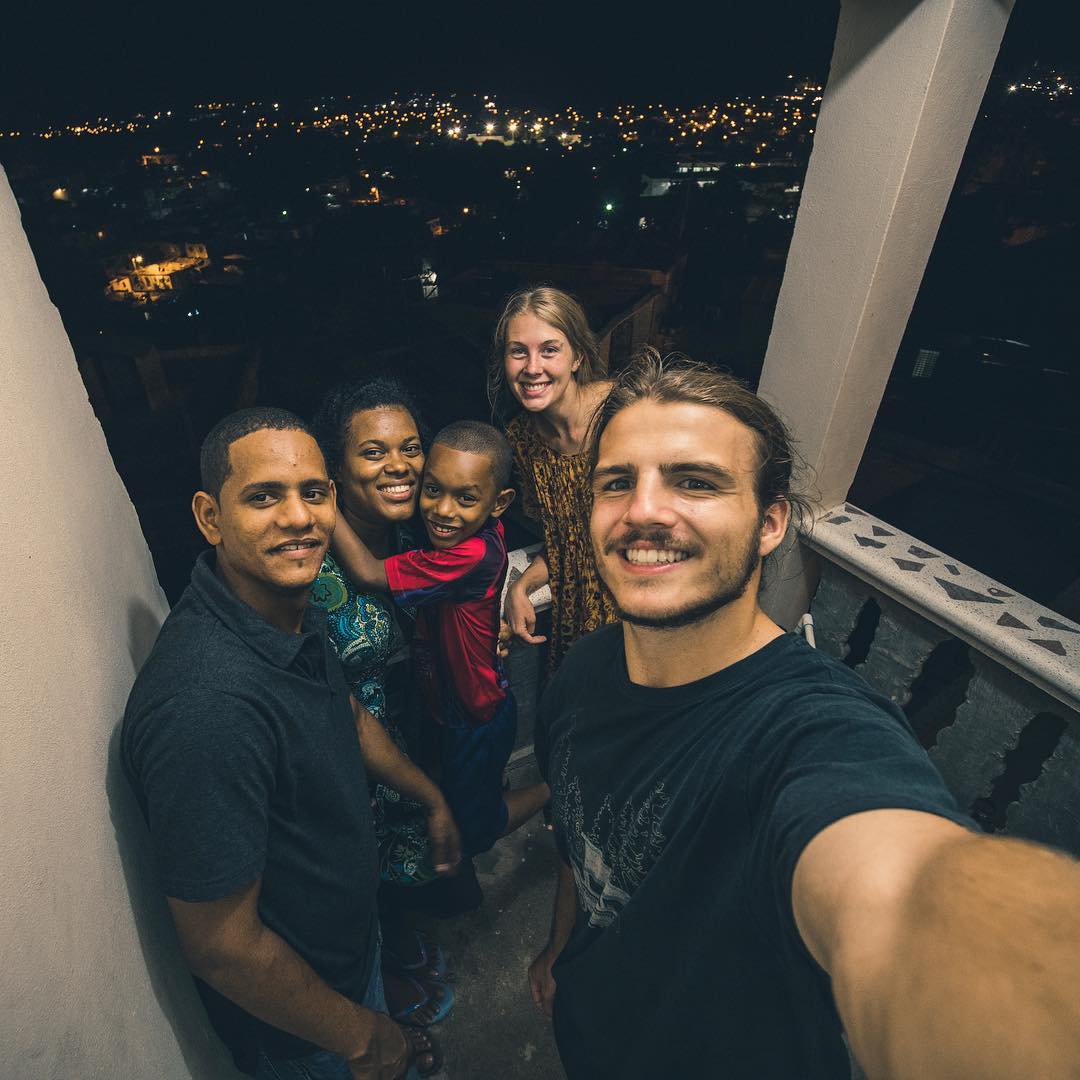
Common Useful Phrases:
Lo siento = I'm sorry
(Sounds like low-see-en-toe) As a foreigner you'll use this quite a lot as you make mistakes at first and want to apologize, right?
Perdon! = Excuse me
(Sounds like pear-doan) This is similar to lo siento, but you might say it like "excuse me" as you need to pass by someone or to get someone's attention.
Como estas? = How are you?
(Sounds like coh-moh eh-stah-s)
Bien, gracias. = Well/Good, thank you.
(Sounds like bee-en grah-see-us)
¿Como te va? = How's it going?
(Sounds like coh-moh tay vah) This is a more casual way of asking someone how they are. You'd probably say this around your friends or the kids.
Buenos! = Good morning/afternoon/evening!
(Sounds like b-way-nos) Technically good morning is buenos dias (dee-as), good afternoon is buenas tardes (tar-des), and good evening is buenas noches (noh-chays). Most of the locals just shorten the 3 phrases to buenos or buenas though and you can say it anytime!
Buen provecho! = Enjoy your meal!
(Sounds like b-way-n pro-veh-choh) It is polite to say this to someone if you pass by them before they start a meal. You might hear your waiter say this after they serve you.
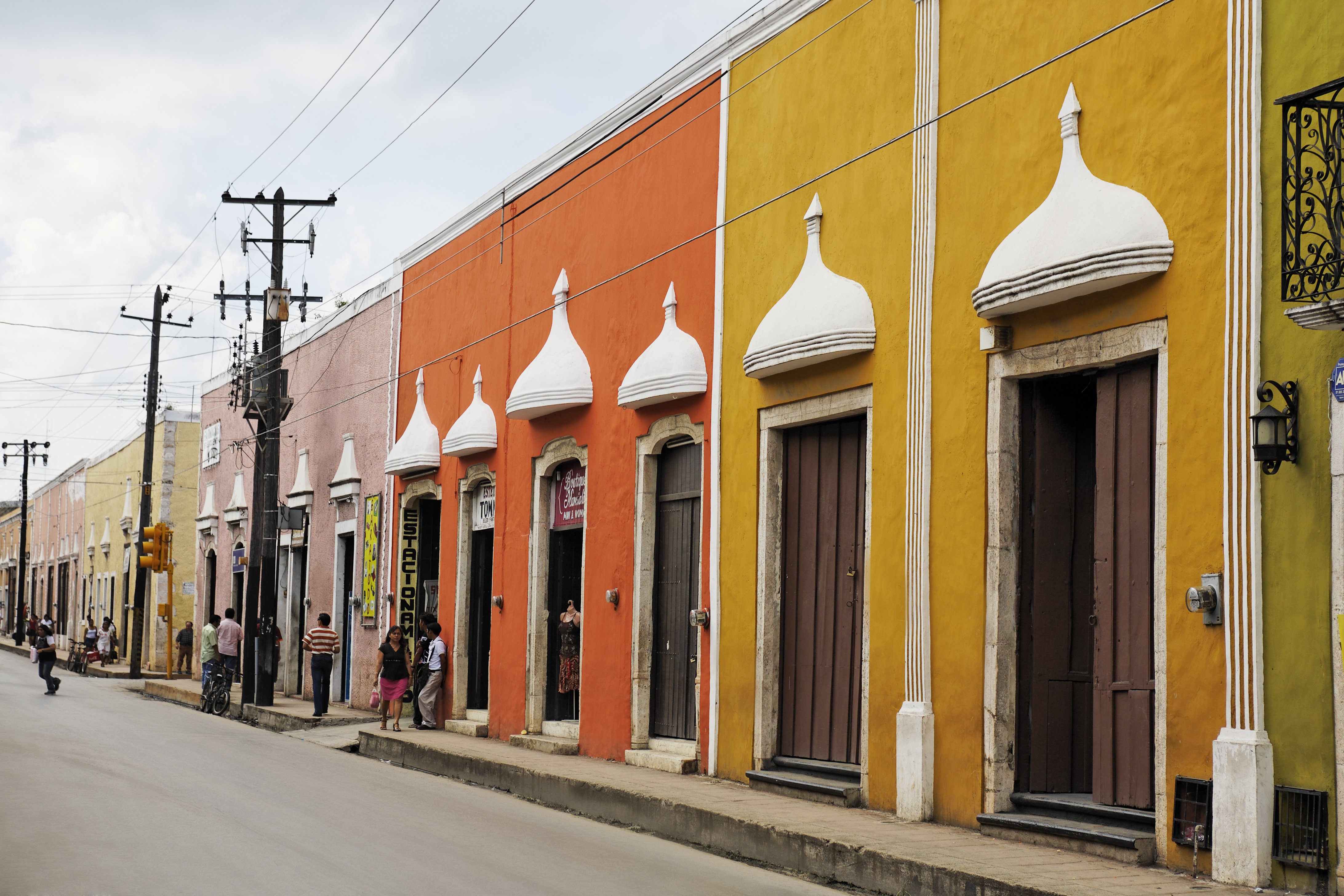
In Case You Get Stuck
¿Donde esta...? = Where is...?
(Sounds like don-day es-tah) If you get lost, don't be afraid to ask for directions. The locals are usually super friendly! You'll just say "donde esta ______" (followed by the place you're asking about).
- Aqui = here (ah-key)
- La playa = The beach (la ply-yeh)
- El restaurante = The restaurant (el rest-arr-on-teh)
- El museo = The museum (el moo-say-oh)
- La tienda = The store (la tea-en-dah)
- La escuela = The school (la ess-cway-la)
- La iglesia = The church (la e-glay-c-uh)
¿Habla inglés? = Do you speak English?
(Sounds like ah-blah ein-glays) Luckily a lot of people do!
Ayudame = Help me
(Sounds like eye-you-duh-may)
Mas despacio, por favor = Slower, please.
(Sounds like mas des-pah-cee-oh, pour fah-vor) If you're trying out your Spanish and someone is speaking too fast, respond with this phrase and they'll understand that you're just learning.
Pronunciation
Some quick basics for learning beyond these phrases start with learning how to read and pronounce in Spanish.
Vowels
The 5 vowels in Spanish are the same as English: a, e, i, o, u. But they have slightly different sounds and only one each. "A" sounds like "ah" as in taco. "E" sounds like "eh" as in get. "I" sounds like "e" as in deep. "O" sounds like "oh" as in note. And "U" just sounds like "you".
Weird Letters to Know
In Spanish, H is silent. So, hotel is pronounced oh-tel.
J makes an H sound. So instead of hahaha, they write jajaja.
Two Ls, like in ella (her), make a Y sound, so it sound like ey-ya.
Ñ/ñ is a second version of N/n used in words like Señor (Mr./Sir) and Señora (Mrs./Ma'am). It sounds like a N and a Y put together. So, Sen-yor and Sen-yor-ah.

Keep Learning
Online Resources
There's so many sites online that will help you learn a language and great news for us, many of them are completely free! Or at least super budget friendly.
Of course, Youtube is always free. You're going to find tons of lessons on there, and this one is actually four hours of free Spanish help!
This site has a free version for a few lessons, and then if you want to keep going they have memberships that are as low as $10 a month, so pretty doable.
This site has subscriptions for 3 or 6 months that are less than $10 a month, if you want to make the commitment.
This site is $14.95 a month with a month-to-month plan and you can learn on the go! They even have a 1 week free trial so you can decide if it is right for you.
Immerse Yourself
If you want to really commit to learning and maybe even become fluent someday, try this site. It is $20 or $30 a month, but it gives you the chance to get immersed in Hispanic videos of all kinds and learn as you go.
Watching TV or movies in Spanish with English subtitles is really helpful for learning how the language actually sounds. Just beware, Hispanics talk super fast, so don't feel bad if you have a really hard time understanding at first. When I first went from textbook and classroom learning to talking to real people I thought for sure they were speaking a different language! And it works the other way around too, I've had many friends that I've met all around the world coming from different languages tell me that they've become so fluent in English by watching English movies.
While I was volunteering in Mexico with ILP, we told our Local Coordinator that we really wanted to learn more Spanish, so she asked someone who worked at our school if they would hold some classes with us during the semester. To this day, I still remember my favorite assignment — she had us all pick a Spanish song and then we had to translate the lyrics. I picked a song that I loved the sound of, and it was really fun to actually know what the song was about. I sang it loud and proud every time after that! And to answer your next question, yes we definitely had a dance party with all the songs we just learned how to sing.
Practice with the locals on your trip
Living in another country for a semester is really the best way to learn a language because you're immersed in it every day. Plus, it's the only way to pick up on fun cultural-isms in actual conversational language. For instance, I love how Hispanics sometimes call their kids "mami" or "papi" as an endearment.
And how you can use -ito or -ita at the end of almost any word to make it smaller or cuter. Like, gatito (gah-tea-toh) = kitty while gato (gah-toh) = cat. Or how mi abuela (me ah-bway-la) = my grandma can become mi abuelita (me ah-bweh-lee-ta) = my adorable, sweet, little grandma that I love.
So, while you're on your trip, don't be afraid to practice with the locals you meet. You'll be surprised how much you can pick up in just a summer or semester. From my experience, people really loved that I was trying and had fun helping me. Plus, they also wanted to practice their English, so it was a great trade!

Let's put that Spanish to use and get you on a trip abroad!
Here's more tips on learning a new language, but you know the best way to learn a language? Live in another country and immerse yourself in their culture! Click below to speak to someone about volunteering with ILP. It's a great adventure, plus you'll get the chance to have a semester in Mexico and learn Spanish, or go serve abroad in Lithuania and learn Lithuanian, and more!


